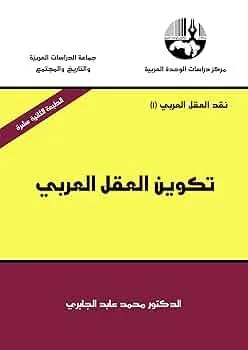Rain, Reason & Revival: Mohammed Abed al-Jabri’s Life
Words by Marwane el MahI / ILLUstration by Julia Krusch for leibniz-magazin
“You talk about rationality for hours in the purpose of sharing knowledge, and what do people do? They congratulate you not on obtaining your PhD, but because it rained during your presentation and they believe it brings ‘baraka’ (blessings).”
This anecdote occurred in 1970, when Mohammed Abed al-Jabri, a young PhD student, was defending his philosophy thesis about Ibn Rushd and Ibn Khaldun (1). He was born in Figuig, an oasis at the frontier between Morocco and Algeria, in 1935 during French occupation, where he grew up until the beginning of the 50s. Some say the oasis is an islet of peace, a paradise among a hellish ocean of desert. Others prefer to talk about the harshness of the place.
As the kingdom of Morocco became “independent” in 1956, all the Moroccan students abroad were called back to build the country. Al-Jabri did the opposite: he was then studying in Rabat, the capital, and traveled to Damascus in 1958 – as Syria was the intellectual center of the Arab world – to complete his studies in philosophy. But the political situation was quite lively in Western Asia and he had to interrupt his stay in Syria to come back to Morocco.
He completed his bachelor’s degree in 1964, followed by his master's in philosophy in 1967, at a time when graduates were a rare item in Morocco’s labor market. His real adventure began then. When he received his PhD in 1970, he became a teacher of philosophy in his alma mater, Muhammad V University of Rabat, and was engaged in left-leaning politics. As Morocco became under a state of emergency between 1963 and 1981 (Years of Lead), he focused on intellectual production. Interested in questions of civilization and cultural heritage, he began to write about these topics in a publication called “Us and the Heritage” (Nahnu wal-Turath) in 1980.
In 1984, “The Formation of the Arab Reason” was published, and it was the first volume of al-Jabri’s quadrilogy “Critique of the Arab Reason”. It was considered a major earthquake on the Arab world’s intellectual stage. In it, he attempts to define Arab reason and trace its history from its emergence to his present day. Noting the stalemate caused by the dichotomy within the Arab intellectual sphere of his time, al-Jabri attempts to explore a third way, contrasting with both the advocates of an idealized past and the supporters of modernism disregarding tradition.
The shock that his books produced was so important that this anecdote is often told: the Syrian thinker Georges Tarabichi (1939-2016) spent 25 years reading al-Jabri to understand his thought and to in turn write “Critique of the critique of the Arab reason”, also in four volumes (2). As someone whose mother tongue is French, I speak from personal experience when I say that after reading “The Formation of the Arab Reason” in Arabic (an English translation was published in 2011 by I.B. Tauris), I could start to easily understand Classical Arabic, to the point where I felt confident enough to exist in a conversation with the likes of Ibn Rushd or Al-Jahiz had they still been alive.
Mohammed Abed al-Jabri died in 2010, but his thoughts and ideas live on.
Illustration by Julia Krusch for Leibniz-Magazin
1 Fouad LAROUI, Plaidoyer pour les Arabes. Vers un récit universel, Paris, Éditions Mialet-Barrault, 2021, p. 145.
2 https://orientxxi.info/lu-vu-entendu/article1432







